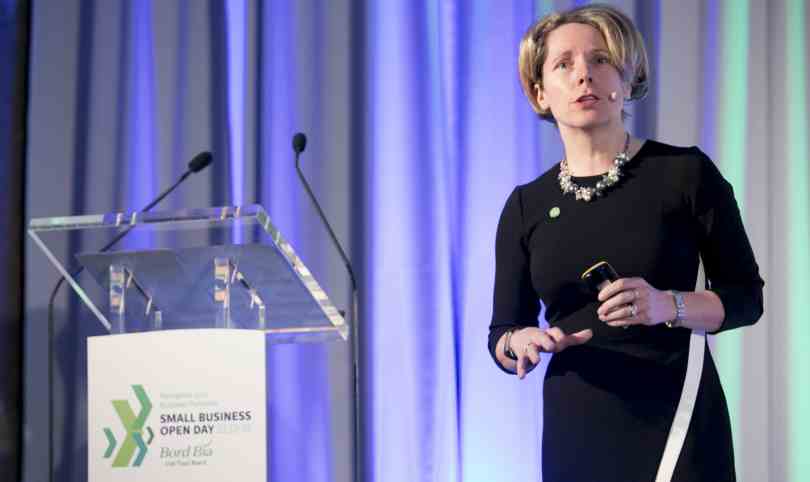A Bord Bia survey conducted in 13 countries shows that environmental sustainability will be of central importance to Irish food businesses from now on.
Headline takeaways from the Global Sustainability Survey include:
- 61% of grocery shoppers globally say it will become more important to them to buy more sustainably produced products in the next three years
- 73% of grocery shoppers globally say they are willing to make changes to their lifestyle to be more sustainable
- 75% of trade buyers globally say sustainability is important to their business
- And 60% of buyers say Ireland is a source of sustainably produced food and drink.
- The extensive study, of businesses and consumers in 12 important export markets and domestically, is intended to help promote sustainability among Origin Green’s Irish food and drink business members and to assist them in promoting their products based on meaningful, sustainable actions.
Chief executive Tara McCarthy (pictured) commented: “The survey will help our industry to better understand how customers and consumers view sustainability, how they can communicate their actions and values in a more impactful way and what areas they need to improve on in the years ahead.
“In many areas of sustainability, Ireland already has a strong competitive advantage, for example grass-fed production of beef and dairy. In others, such as food waste, this research gives us the opportunity to highlight to our members how that is a key touchstone for consumers in certain key markets and the value of meeting these expectations.
“The best way of encouraging action is to demonstrate how it contributes to the long-term sustainability of the business. This research makes the clear case for businesses to engage in measurable action across a range of sustainability issues.”
Sustainability Issues
Research in the markets indicated that emissions were a key topic for agenda setters and customers. These groups, particularly larger retailers, are setting science based or net-zero targets, putting pressure on suppliers to reduce emissions and presenting sustainable suppliers with an opportunity to stand out.
At present, consumers view food waste and packaging as the most important sustainability issues. Some 77% indicate that they have made an effort to buy products with less packaging, and 87% indicate that they have made an attempt to reduce food waste in the last 12 months.
Two thirds of trade buyers globally say “having the lowest possible greenhouse gas emissions/carbon footprint” is important when choosing a supplier and sustainability is becoming a key purchasing criteria for trade buyers, along with quality, price and supply. However, consumers are less focused on emissions, as it is more difficult to link the carbon footprint to the product on-shelf.
Biodiversity Impact
Similarly, while agenda setters are very heavily focussed on biodiversity, this issue is not yet on the radar for consumers in terms of making purchasing decisions. However, as the sustainability agenda develops and becomes more important, the carbon and biodiversity impact of products will become more important to consumers.
The research indicates more tipping points in the short to medium term that will bring increased consumer and trade buyer focus on big sustainability topics, says the report.
For beef and dairy consumers, high animal welfare standards and grass-fed are some of the most important sustainability attributes globally that can command a premium. Almost one in four beef consumers globally say they are willing to pay a premium for grass-fed beef.
The full details of Bord Bia’s most extensive survey ever are available here.








